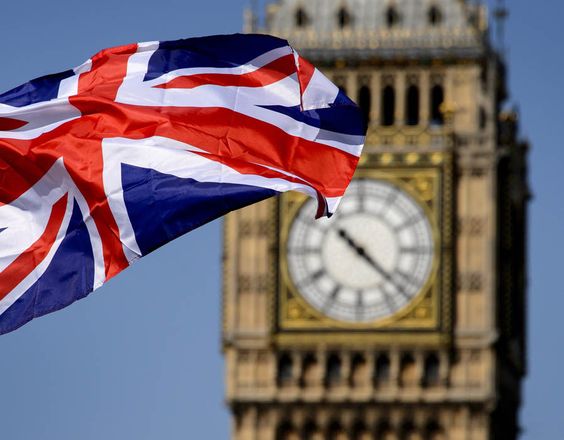When Did England Become a Democracy
England’s journey toward democracy is a multifaceted process that evolved over several centuries. It involved a series of key events and gradual reforms, rather than a singular moment of change. This blog post delves into the major milestones in England’s democratic evolution, tracing its development from the signing of the Magna Carta in 1215 through to the suffrage expansions of the 19th and 20th centuries.
The Magna Carta: A First Step Toward Democracy (1215)
The Magna Carta, signed by King John in 1215, is often heralded as a foundational document in the history of constitutional governance. Although it did not create a democracy in the modern sense, it was instrumental in curbing the absolute power of the monarchy and establishing the principle that the king was not above the law. Read about What was the Basic Aim in a Direct Democracy
Key Provisions of the Magna Carta
The Magna Carta introduced several revolutionary concepts:
- Legal Equality: The principle that everyone, including the monarch, was subject to the law.
- Due Process: The right to a fair trial and protection from arbitrary imprisonment.
- Feudal Rights and Obligations: Addressed grievances related to feudal rights, taxation, and justice.
These provisions set the stage for future legal and constitutional reforms by emphasizing the rule of law and the necessity of due process. Don’t Miss to Check Out Our Website: greeninnovators.xyz
The Evolution of Parliament
The development of Parliament was a crucial element in England’s journey towards democracy.
The Early Parliaments
The establishment of the English Parliament began with the first assembly in 1215, but it was the Model Parliament of 1295, called by Edward I, that established a more representative body. This Parliament included not only nobles and clergy but also commoners from towns and shires, representing a broader cross-section of society.
The Role of Parliament in Shaping Governance
The evolution of Parliament was marked by several significant developments:
- Increasing Representation: Over time, Parliament became more inclusive, incorporating representatives from various social and economic classes.
- Power Struggles: Tensions between the monarchy and Parliament over issues of governance and authority played a crucial role in shaping the modern democratic system.
The English Civil War and the Glorious Revolution
The 17th century was a transformative period for English democracy, marked by the English Civil War and the Glorious Revolution.
The English Civil War (1642–1651)
The English Civil War was a conflict between the monarchy, led by King Charles I, and Parliament. The war resulted in the temporary overthrow of the monarchy and the establishment of the Commonwealth of England under Oliver Cromwell. While Cromwell’s rule was not a democracy, the conflict underscored the growing power of Parliament and the need for a more balanced system of governance.
The Glorious Revolution (1688)
The Glorious Revolution saw the overthrow of King James II and the accession of William III and Mary II. This event had a profound impact on England’s political system:
- Bill of Rights (1689): The Bill of Rights limited the powers of the monarch and established key principles such as regular elections and freedom of speech within Parliament.
- Parliamentary Supremacy: The Glorious Revolution solidified the power of Parliament and set the stage for a constitutional monarchy.
The Reform Acts and Expansion of Suffrage
The 19th and early 20th centuries were marked by a series of Reform Acts that expanded suffrage and democratized the political system.
The Reform Act of 1832
The Reform Act of 1832, also known as the Great Reform Act, was a landmark in the democratization of England. It addressed issues related to “rotten boroughs,” which were parliamentary constituencies with very few voters, and redistributed seats to better represent urban populations. Additionally, it lowered property qualifications, allowing more middle-class men to vote.
Subsequent Reform Acts
Following the 1832 Act, several other reforms further expanded the electorate:
- The Reform Act of 1867: Extended the right to vote to more working-class men and reformed the electoral system.
- The Reform Act of 1884: Further expanded voting rights, bringing greater representation to rural areas and working-class men.
The Representation of the People Acts
The early 20th century saw crucial changes in voting rights:
- Representation of the People Act 1918: Granted voting rights to women over the age of 30 who met certain property qualifications.
- Representation of the People (Equal Franchise) Act 1928: Achieved universal suffrage by granting equal voting rights to women and men.
Women’s Suffrage and the 20th Century
The struggle for women’s suffrage was a significant chapter in England’s democratic development. Women’s campaigning efforts throughout the late 19th and early 20th centuries led to incremental changes in voting rights.
Milestones in Women’s Suffrage
- Early Campaigns: Women’s suffrage campaigns began in earnest in the late 19th century, with organizations like the Women’s Social and Political Union advocating for voting rights.
- Representation of the People Act 1918: Granted partial suffrage to women.
- Equal Franchise Act 1928: Ensured that women had the same voting rights as men, marking a significant milestone in gender equality in voting.
Conclusion
England’s journey toward democracy was a gradual and multifaceted process, marked by significant events and reforms. From the Magna Carta’s early limitations on royal power to the suffrage expansions of the 20th century, each milestone played a role in shaping the democratic governance of England. Today, the United Kingdom operates as a constitutional monarchy with a parliamentary democracy, reflecting centuries of political evolution and the ongoing struggle for representation.
FAQs
Q. What is the significance of the Magna Carta in England’s democratic history?
The Magna Carta is significant because it introduced the principle that everyone, including the monarch, is subject to the law. It also established ideas such as the right to a fair trial and protection from arbitrary imprisonment, which laid the groundwork for future democratic developments.
Q. How did the Glorious Revolution impact England’s political system?
The Glorious Revolution of 1688 resulted in the overthrow of King James II and the establishment of William III and Mary II as co-monarchs. The subsequent Bill of Rights 1689 limited the powers of the monarch and affirmed the rights of Parliament, including regular elections and freedom of speech within Parliament.
Q. What were the key changes introduced by the Reform Act of 1832?
The Reform Act of 1832 addressed the issue of “rotten boroughs” by redistributing parliamentary seats to better represent urban populations. It also expanded the electorate by lowering property qualifications, allowing more middle-class men to vote.
Q. When did women in England gain the right to vote?
Women in England gained the right to vote in 1918 with the Representation of the People Act, which granted voting rights to women over the age of 30 who met certain property qualifications. Full universal suffrage, granting equal voting rights to women and men, was achieved in 1928.
Q. How does England’s current political system reflect its historical development?
England’s current political system is a constitutional monarchy with a parliamentary democracy. This system reflects its historical development, including the principles established by the Magna Carta, the parliamentary supremacy affirmed by the Glorious Revolution, and the expanded suffrage achieved through various Reform Acts.

Robert is a versatile writer who enjoys exploring a wide range of topics, from travel and food to personal development and everyday tips. With a background in communication and a curiosity about the world, she brings a fresh perspective to her writing, aiming to inform, entertain, and inspire her readers. Emily believes in the power of storytelling to connect people and is always on the lookout for the next story to tell. In her free time, she loves to travel, cook, and discover new books.

